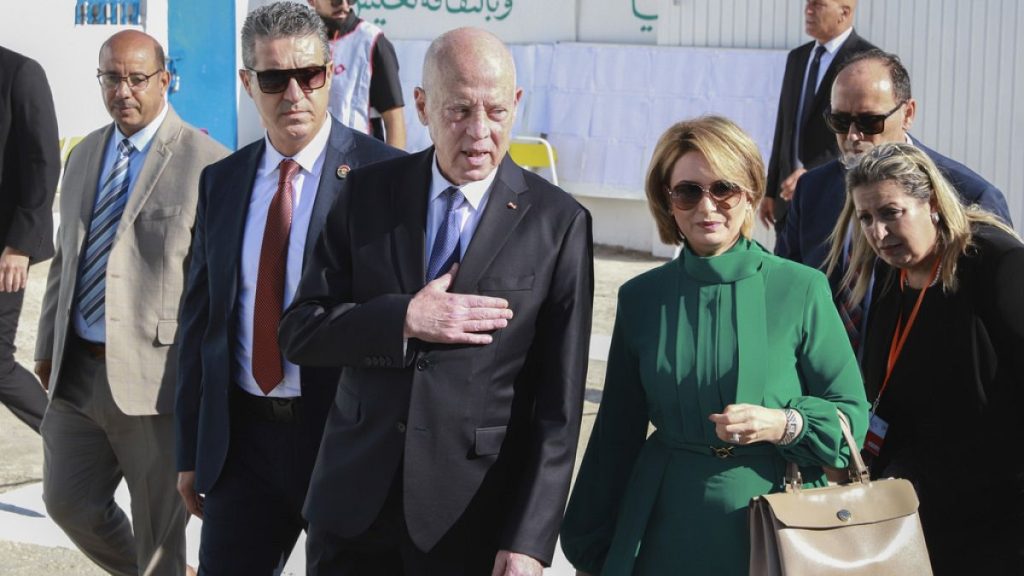Tunisian President Kais Saied is set to win re-election on Sunday, facing little opposition as his major opponents are either imprisoned or excluded from the ballot. Tunisia has struggled with political instability and economic challenges since the 2011 ouster of President Zine El Abidine Ben Ali. Saied, a political outsider, won his first term in 2019 with promises of transformation and empowerment of young people and local governments. His actions in 2021, declaring a state of emergency and rewriting the constitution, have been criticized as a coup by pro-democracy groups and opposition parties.
The presidential election this year offers insight into the trajectory of Tunisia’s democracy since Saied took office and consolidated his power. Despite criticism and anger from career politicians, voters approved the new constitution in a low-turnout referendum. Saied’s supporters remain loyal, but it’s uncertain how deep his support runs given his lack of affiliation with any political party. Opposition groups have called for a boycott of the election, denouncing it as a sham and questioning its legitimacy.
Economic challenges continue to plague Tunisia, with high unemployment rates and slow growth exacerbated by the COVID-19 pandemic. Saied’s economic strategy remains unclear, and negotiations with international lenders, such as the IMF, have stalled over conditions including cutting public wages and subsidies. The dire economic situation has fueled migration issues, with increasing numbers of Tunisians attempting to migrate to Europe while the administration takes a harsh approach against migrants from sub-Saharan Africa.
Internationally, Tunisia has maintained ties with Western allies while forging new partnerships under Saied’s leadership. Emphasizing sovereignty and rejecting “foreign diktats,” Saied has resisted pressure to act as a border guard for Europe. Tunisia has accepted loans from China’s Belt and Road Initiative for infrastructure projects and lifted visa requirements with Iran. European countries remain top trade partners, with leaders praising agreements to manage migration as a model for the region.
Overall, Tunisia’s upcoming presidential election reflects the challenges facing the country, including political instability, economic hardship, and contentious migration issues. Despite criticisms of Saied’s actions and authoritarian tendencies, he is likely to secure re-election due to the lack of viable opposition candidates. The outcome of the election will have implications for Tunisia’s democracy and its relationships with international partners, as well as shaping the country’s future trajectory.


